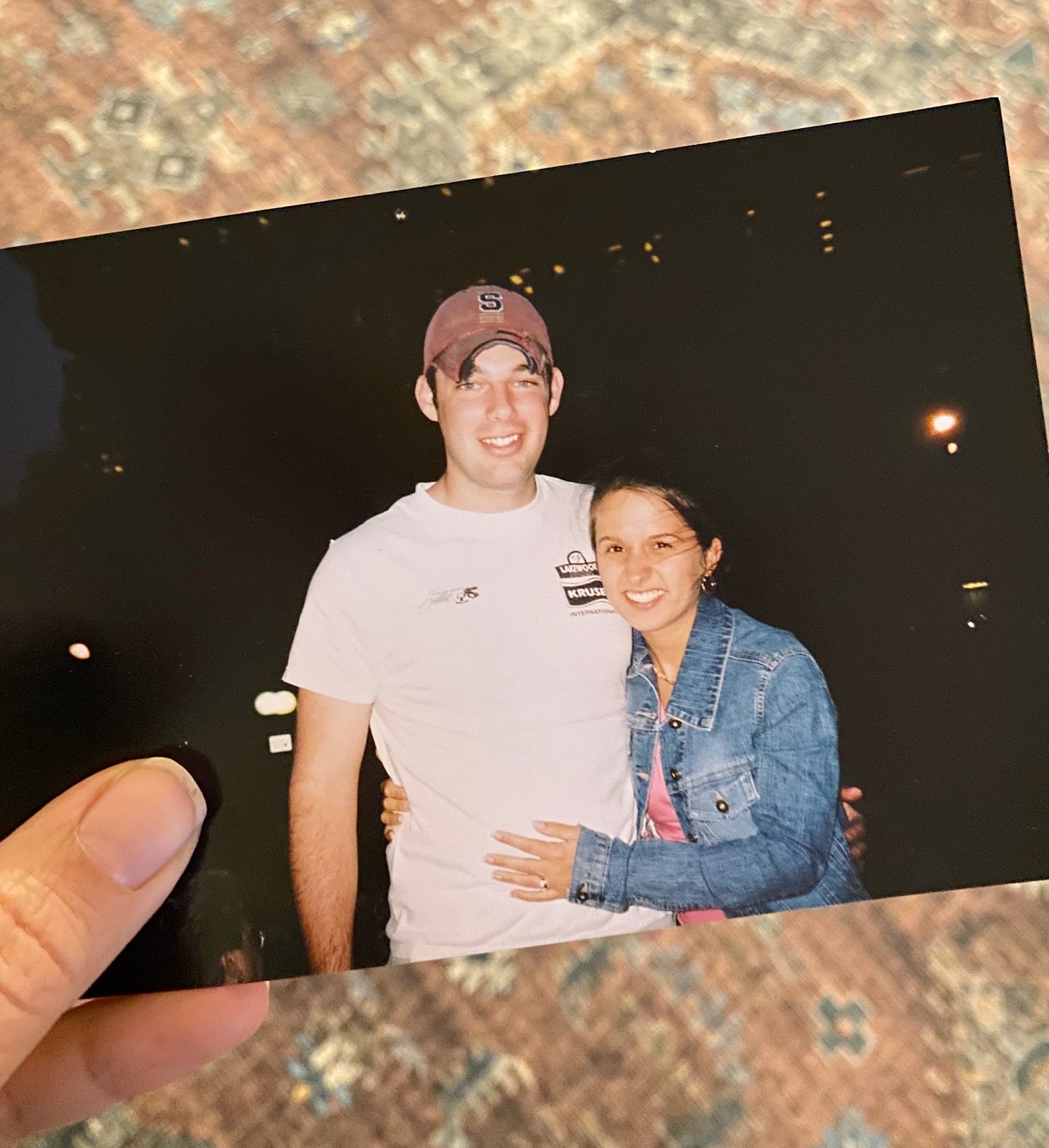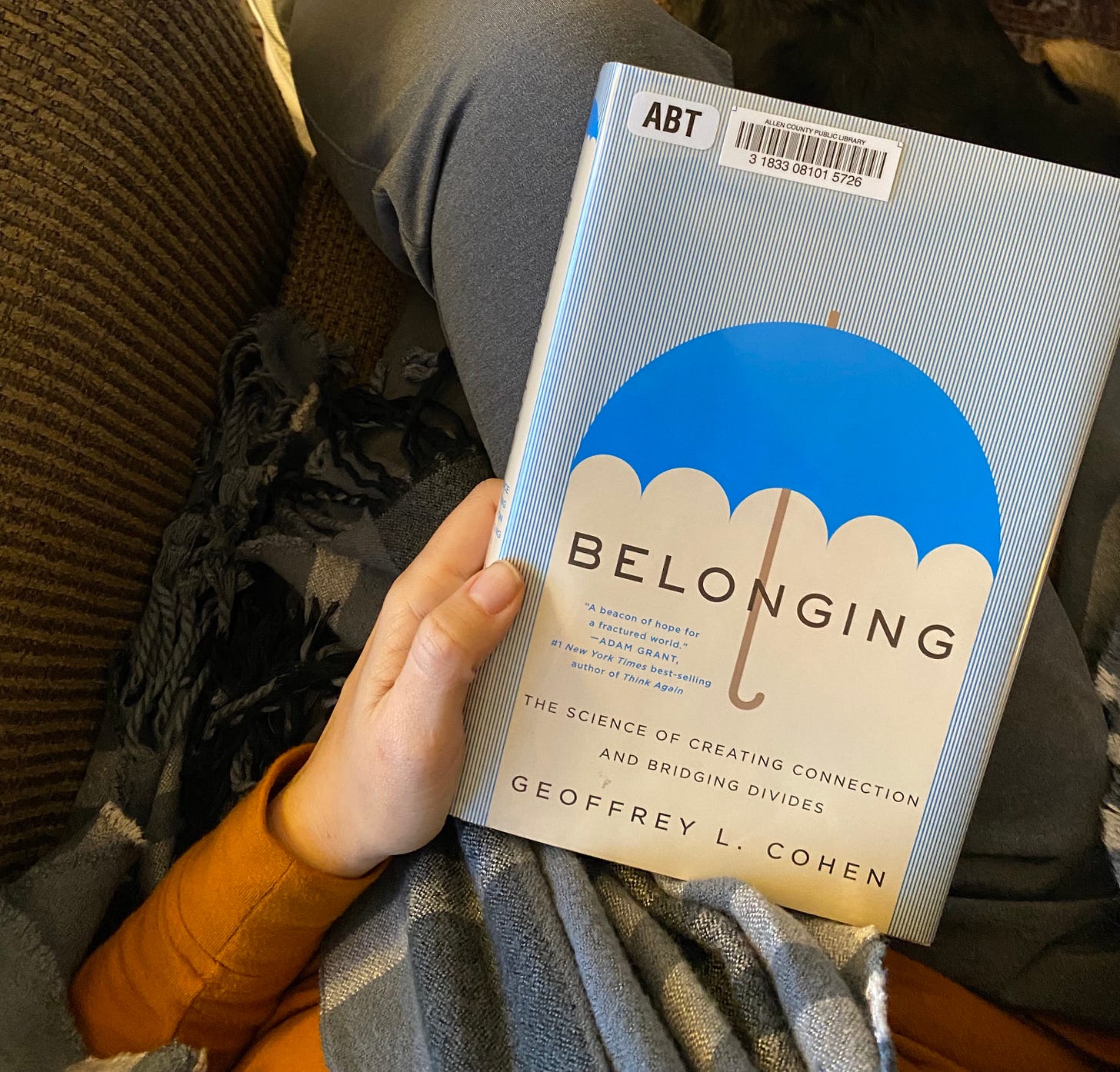Over the weekend, Ben asked, “When did you know—really know—you wanted to date me?”
We laughed, because we both knew it was not our first interaction. It was the winter of 2002, and Ben and I were sitting near each other at a basketball game. I was a high school senior, and he had one year of college tucked beneath his much-more-mature belt. As the game ended and several of us lingered in the bleachers, I asked Ben (with no intention other than to make conversation), “So what are you doing afterward?”
His response: “Not hanging out with high school girls.”
Suffice it to say, I was not immediately impressed with Ben Westfall, so much so that the next time I saw him at Walmart, I considered ducking into the men’s clothing section just to avoid him. (I didn’t. We ended up talking a little. I changed my tune, he improved his manners, and a couple months later we were dating.)
I look back on that interaction and laugh now, because my first impression was so very wrong. Yes, Ben Westfall was and is sarcastic. (Snark might actually be his love language.) But what I did not see in that moment was his love of laughter or the way he shows up for his friends. (He was at that basketball game to support a roommate’s sister.) I could not yet see his deep empathy for other people or the patience and steadfastness that seems to flow in his veins. Gosh, I’m glad my first impression did not become the end of the story.
While I wish I could chock up my misconception to a one-time occurrence, the reality is that every day I am liable to tell myself stories about the people around me that may or may not be true. We all do.
We are all prone to allowing single moments tell too large a tale.
Recently, I came across a new-to-me term called the Fundamental Attribution Error (or FAE).1 The basic principle of FAE is that all of us have a default lens on the world, and when we are in situations with clear gaps of knowledge or understanding, we tend to fall back into our bias—our reactive, hot-take assessments of people and situations.
In the example of me and Ben, I assumed his response at the basketball game was indicative of who he was: a jerk. Full stop. That January night, I left no room for any other conclusion.
That snap judgment was my FAE in action. I made the assumption that Ben was nothing more than his snarky words. I did not account for his complexity, for how he might have been slightly nervous around a group of strangers or that his words might have been his own (misguided) way of flirting. I did not consider the larger story at play, because I could not to see beyond my own lens.
In Belonging: The Science of Creating Connection and Bridging Divides, Stanford professor Geoffrey L. Cohen writes,
“The Fundamental Attribution Error leaves little room in our minds to imagine the complexities and contradictions of people.”
Therein lies the problem. In almost every situation, our FAE is extremely one-sided and does not account for the situation at large. These split-second responses tend to be binary (if this…then that) and impact how we view a person’s character.
To make FAE even more problematic, those quick reactions can also lead us to draw narrow conclusions and put ourselves on the side of virtue. That us-versus-them tendency is troublesome, not only to our relationships but to our souls. As Jonathan Gottschall writes in The Storytelling Animal, “This need to see ourselves as striving heroes of our own epic warps our sense of self.” We begin to see the person in the mirror a little “more highly than you ought.”2 And we begin to look down upon each other, even without knowing all the details.
I don’t know what would have happened if I had avoided Ben after that first conversation. Maybe we would have eventually ended up together. Maybe not.
All I know is that slowly I am learning to leave ample room for what I do not know or see in others—and for what they do not know or see in me. I am discovering that sometimes turning the other cheek means allowing for second chances or using my God-given imagination to tell a more merciful story, out loud or in my mind.3 I am (painfully) confronting the error within me, one interaction at a time.
grace + peace,
Sarah
Good Things to Pick Up
quick note: starting in March, I will be sending out this short list on a monthly basis rather than weekly. I love pulling together and passing along these resources related to our faith and belonging, but I’m also acutely aware of my capacity in this season. (Who knew writing a book would be simultaneously both sweet and incredibly stretching?! Maybe you knew… I did not.) Thanks for your graciousness in this change! My mind, body, and emotions thank you.
A Book
I will admit I renewed Belonging: The Science of Creating Connection and Bridging Divides three times to make my way through it, because it is so meaty and packed full of research studies, assessments, and practical applications for our moment in history. But if you’re looking for a book that looks at connection and community from a psycho-social perspective, I think you’ll find it worth the perseverance.
An Album
Suite No. 1 Oh Dreamer by The Brilliance is one of my go-to albums, but listening again this past week, I was struck by many of the themes of belonging that run through the lyrics. Here’s a lyric video from their opening track “Welcome to the Darkness” that’s both captivating and convicting.
A Chance to Gather
Part of what I love to offer paid subscribers to Human Together is a monthly chance to gather online for conversations to narrow the space between us. It’s not intense. I try not to make it too weird (but no guarantees…sometimes awkwardness is part of the package). I simply want to allow room to get a little closer to each other and discuss some of the issues we are facing as human people wanting to experience and foster belonging.
For our March gathering, I have invited Sara Billups, author of Orphaned Believers, to come tell us a bit of her story, which involves a complicated but incredibly hopeful relationship with the church. We’ll also make some time for Q&A. You can upgrade your subscription to join us (for scholarship options, please email me directly).
All content related to the Fundamental Attribution Error (FAE) comes from Belonging: The Science of Creating Connection and Bridging Divides by Geoffrey L. Cohen (United States: W.W. Norton & Company, 2022).
A reference to Romans 12:3 (CSB), which goes on to talk about the diversity of the body of Christ.
The phrase “turning the other cheek” is a reference to Matthew 5:38-42, nestled in between Jesus’ teachings to tell the truth and love your enemies.




Sarah, what I love most about this story is that all the way back then, even as a high school girl talking to an older boy you didn't know, your curiosity had you asking questions to know the people around you. You have been about belonging for so long.
Love this musing on first impressions and staying curious. When we didn't know each other well, I thought Luke was "weird," and he thought I was "unapproachable."
I love us, though. We've grown a lot from being teenagers in college. We have so many differences and are learning our hearts and stories more and more. I totally get why he thought I was "unapproachable," and his "weirdness" is part of the reason I'm learning to become softer, sillier, and more curious.